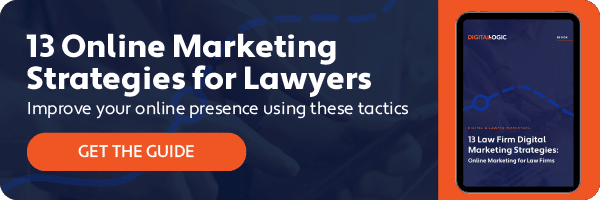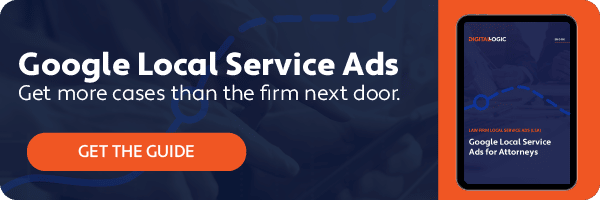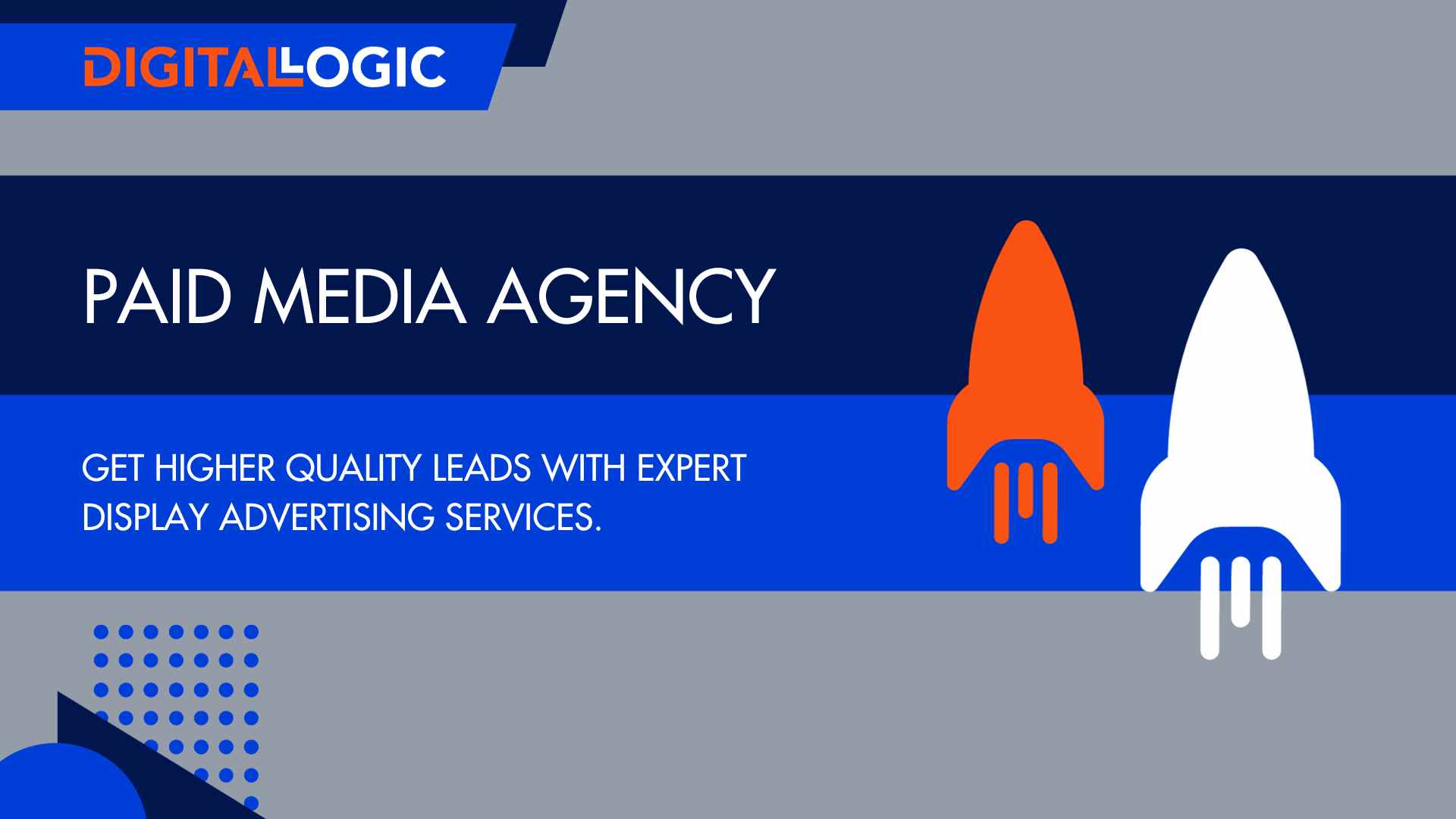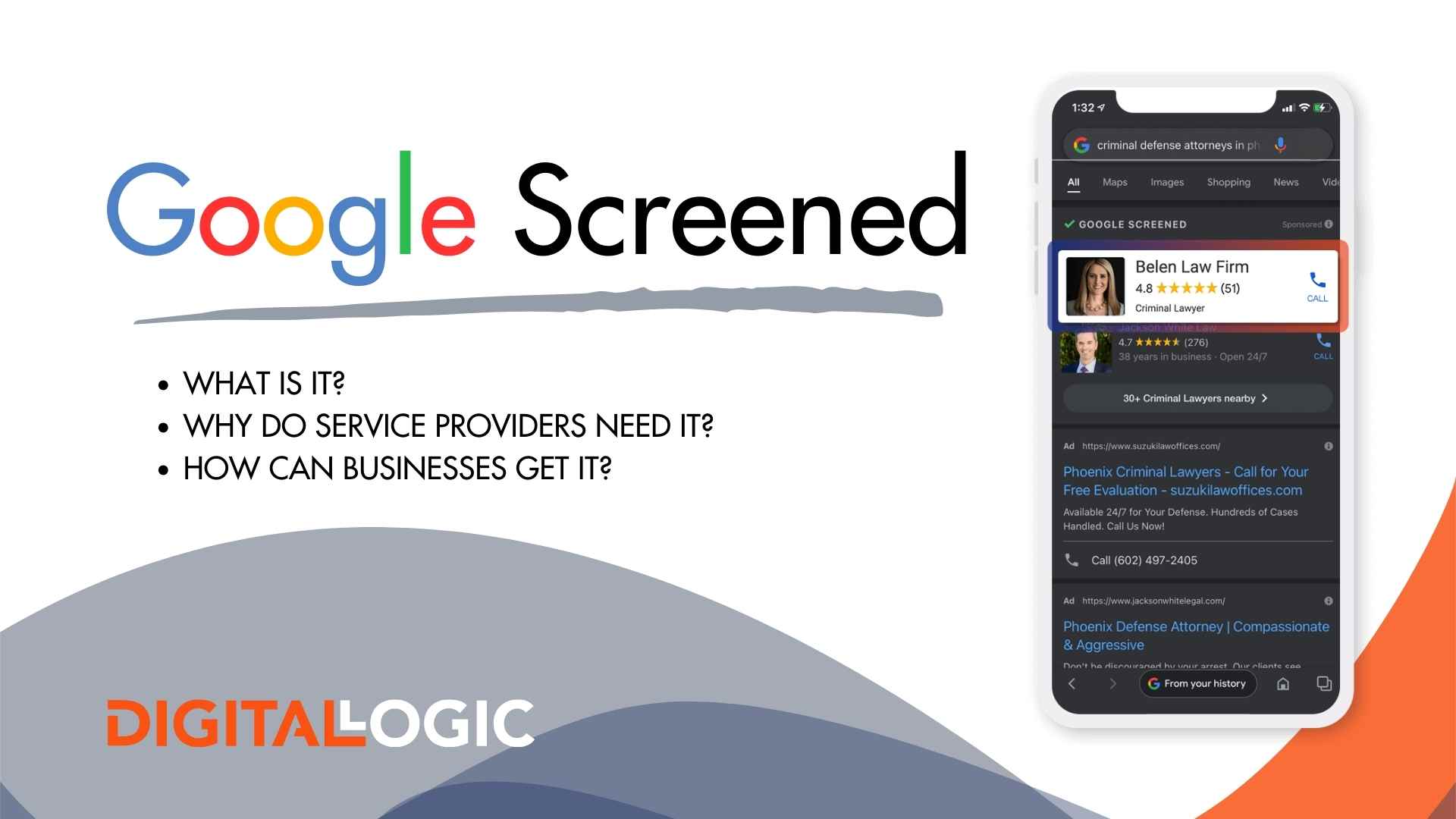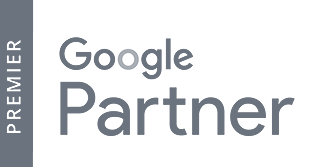Marketing for law firms can be a complicated and lengthy process. It’s easy for lawyers to get bogged down in spreadsheet columns that never seem to lead anywhere. Additionally, marketing for legal services in today’s digital age can be even more complicated than it might have been just ten years ago. But, it doesn’t have to be this way.
With the right law firm marketing strategies in place, you can take charge of your firm’s marketing in the thick of the digital age. This means you can potentially expand your client base and increase your profits. But, where does one start online marketing for law firms?
Don’t have time to read the whole post? Download the guide free:
Here’s what you need to know about marketing your law firm:
What is Online Marketing for Law Firms?
Table of Contents
ToggleOnline marketing for law firms is essentially a digital strategy or a plan of action that is designed to promote and sell a legal service. It’s a necessity in today’s fast-paced digital marketing world.
Effectively marketing your law firm online requires a multifaceted approach, including:
- law firm website
- well-maintained social media profiles
- effective law Firm PPC management services
- high-quality legal content marketing services
Clients are increasingly finding law firms online through trusted sources, such as Google. To ensure your law firm can compete, you must compose an effective online marketing campaign for your law firm.
Why Should I Invest in Law Firm Marketing?
It’s not a bad question; law firm marketing often requires multiple coordinated digital efforts, as well as plenty of time and money. So why even bother?
Competition Between Law Firms
Part of the answer lies back in 2009 when law schools began churning out more bar exam passers than ever before. With such an influx of new lawyers, the competition for the best clients has become particularly fierce, even ten years down the line.
While the demand for legal services has decreased, the number of lawyers employed by law firms has increased.
Non-Traditional Legal Service Competition
The second part of the answer is a bit closer to home: law firms aren’t just competing with other law firms anymore.
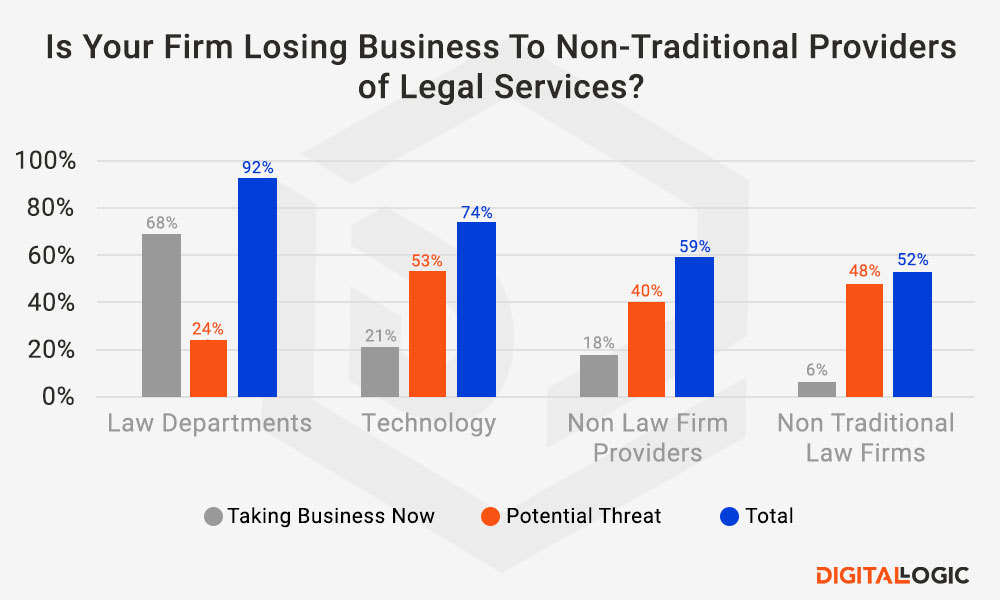
The same Altman Weil Survey found that more legal work than ever was going to in-house legal departments or non-traditional legal service providers. Many services law firms provide are also being downright eliminated or, at the very least, redefined by advancing technology.
In this growing sea of competition, and in the midst of the arms race to minimize cost while maximizing efficiency, it’s not just important, but vital that your firm stands out on local Google searches and that you separate your law firm’s branding from the crowd.
This is what professional online marketing for law firms is for.
Which Law Firm Marketing Strategies Should I Invest In?
A lot of law firm marketing trends revolve around ranking on search engines. This is actually a helpful law firm marketing trend, as 95% of people never look past the first few search results on Google.
However, getting potential clients to see and open your law firm’s website is only part of the challenge. Once they’ve clicked, you want them to actually hire you for legal services.
Website Optimization for Law Firms
The vast majority of your legal clients’ first impressions of your law firm will be your website. For this reason, your law firm website should be two things: fast and mobile-friendly.
We can’t emphasize enough the importance of investing in law firm web design services.
Good design will make sure your potential clients will not only find your law firm on local Google searches but also convert into paying clients.
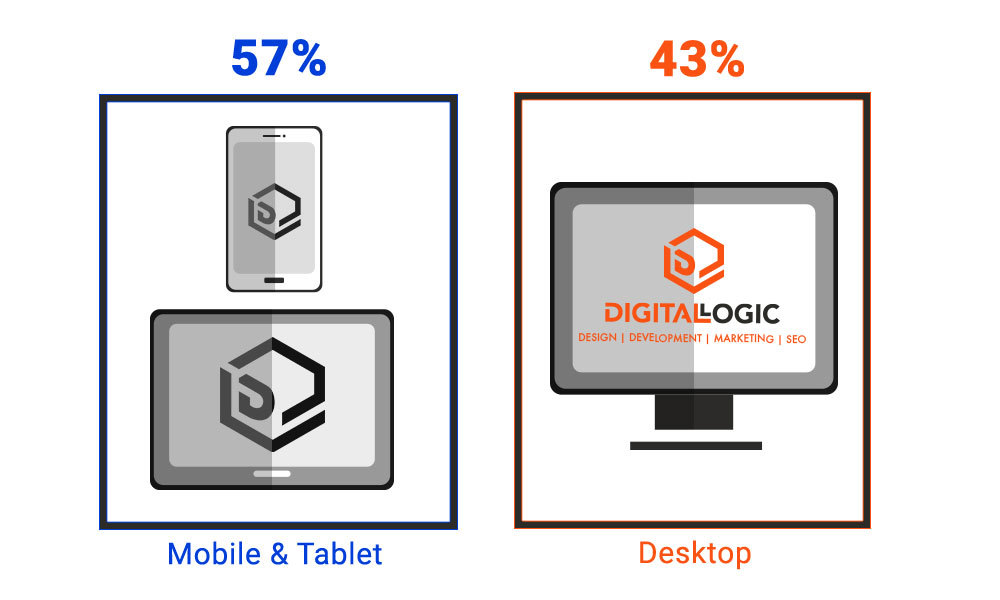
Page Speed
Your firm’s website needs to be fast. Research shows that nearly half of all people expect a website to load in 10 seconds or less.
If your law firm website doesn’t measure up, it will only become one in a long line of pages a potential client has hit the “back” button on.
Mobile-Responsive
Your firm’s website needs to be mobile-friendly. More than half of all search engine traffic is generated through smartphones or tablets, and that number is only growing.
If a potential client opens your website on their smartphone and finds the text too small, or the photos are sized incorrectly, odds are they’ll be clicking the “back” button hard enough to rock your bottom line.
Side Note: If you’re trying to move from FindLaw, Digital Logic can help you make that transition. We also provide information on FindLaw marketing and website alternatives.
Website Marketing for Law Firms
A landing page is whatever part of your website a potential client “lands” on when clicking a link. Most often, this is your home page.
Your landing pages are the difference between just getting more people to open your website and actually increasing your client base.
You want to convert those clicks into paying clients, and in order to do that, your landing pages need to be:
- Professionally written and inspire a specific action. For example, a divorce lawyer might include the phrase “Avoid the Pain and Stress of Divorce” on a landing page.
- Optimized for whatever AdWords phrase you are targeting, such as “DUIs in Portland” or “custody rights for fathers in Florida”
- Unique for each specific service or practice area you want to promote
If you do it right, having optimized landing pages can significantly boost the amount of conversions to paying clients.
Add Live Chat to Your Legal Website
If some of you lawyers out there shuddered a little bit reading that, we understand.
It sounds like a terrible idea to spend hours of your day giving away free advice over chat, but there are plenty of benefits associated with including live chat on your site, including:
- Immediacy; you can answer many of your client’s questions right there and then
- Converting simple interest into paying clients
- Leaving your website open for business 24/7
- It takes up none of your time, your agents or interns can handle standard queries
- It makes you seem more progressive and modern
Build a Law Firm Brand
Aside from website maintenance, the content you put on your law firm’s website matters.
You need to build a brand. And, building a law firm brand isn’t always about spending money on letterheads and fancy business cards. Effective online marketing for law firms doesn’t always cost you money.
The first step to building a brand is to decide what message you want your law firm to project to the public. This will largely depend on what kind of lawyer you are:
For defense attorney marketing, you might want to espouse the image of being aggressive and cutthroat, while for bankruptcy attorney marketing, you will likely want a softer and more friendly approach.
Also, include what differentiates you from the competition. Do you have more experience? Are you more approachable? Incorporate that into your website.

Demonstrating Credibility and Authority in Law Firm Branding
It is always a smart move to include awards you’ve won or reviews from past clients on your website.
For awards, while including text is beneficial for SEO purposes, it provides the cleanest visual to just have a page of images or logos of the awards your law firm has won.
For reviews, including a “testimonials” page to your law firm website will provide your potential clients with instant feedback from your former clients.
It can also be beneficial to include case studies on your website, to showcase your expertise and success.
Demonstrating Capability in Practice Areas
You always want to be sure to communicate the extent of what you offer to your potential clients, as well as your power to deliver.
Including a page on your website to show all your practice areas is one way to do this. Another way to demonstrate your credibility is to show the number of lawyers you have in your firm, if you have more than one.
SEO Strategies for Lawyers
Besides being fast and mobile-friendly, your law firm’s site should also be easily found on search engines, like Google.
Generally, this means being on the first page, preferably in the first few results.
Think about it: have you ever looked at the second page of Google? Again, 95% of people don’t even look past the first three search results.

But don’t get discouraged; this is what law firm SEO agencies are for. We specialize in online marketing for law firms.
Search engine optimization (SEO) streamlines website content to help your law firm rank on Google’s search engine, while content marketing for law firms helps convert consumers into paying clients.
How to Optimize Law Firm Websites
Besides optimizing your law firm’s website for speed and mobile devices, here are a few other organic marketing tasks that can help improve your law firm’s website rankings on search engines:
- Optimizing images on your website and adding keyword-rich descriptions
- Adding schema for attorneys (Schema is code that helps search engines understand what your website is about.)
- Adding relevant keywords in the title, image, and heading tags
- Utilizing link-building opportunities. (The more relevant sites that link to your website, the higher you will rank on Google.)
- Optimizing your landing pages with relevant keywords
- Focusing on long-form content rather than short-form content. (Google will rank posts or articles of 1,500 words or more over shorter posts or articles, known as short-form content.)

Local SEO for Lawyers
A SEO professional can also help you with local SEO for lawyers, which differs slightly from normal SEO. The goal of local SEO for attorneys is to get your business at the top of the Google search results for a local service area.
When you Google services in a specific area, the first thing you’ll see will be paid ads. Underneath the paid ads, the box of Google Map search results is known as the local pack. You want to be at the top of the local pack of law firm services for your area.
Whether or not you appear in the local pack depends on your Google My Business profile. Optimizing your law firm’s profile and posting to Google Business are two of the best local SEO efforts your firm can make!
Legal Directories for Attorneys
Marketing with lawyer directories works because mentions of your law firm on third-party websites, known as “citations,” improve your SEO. This, in turn, increases increase your ranking with Google–a tried and true trick for online marketing for law firms.
One way to garner citations is to be listed in various attorney directories, like FindLaw or Avvo.
Some of these legal directories allow you to enter your details for free, while others will require a one-time payment. Some will have the option of a monthly subscription in order to provide your law firm with extra exposure.
Google Ads for Law Firms
The very first thing you see when you Google services are paid ads. The number of ads on the first page of search results is increasing quickly. An optimized Google AdWords campaign can drive huge amounts of traffic to your law firm’s website.
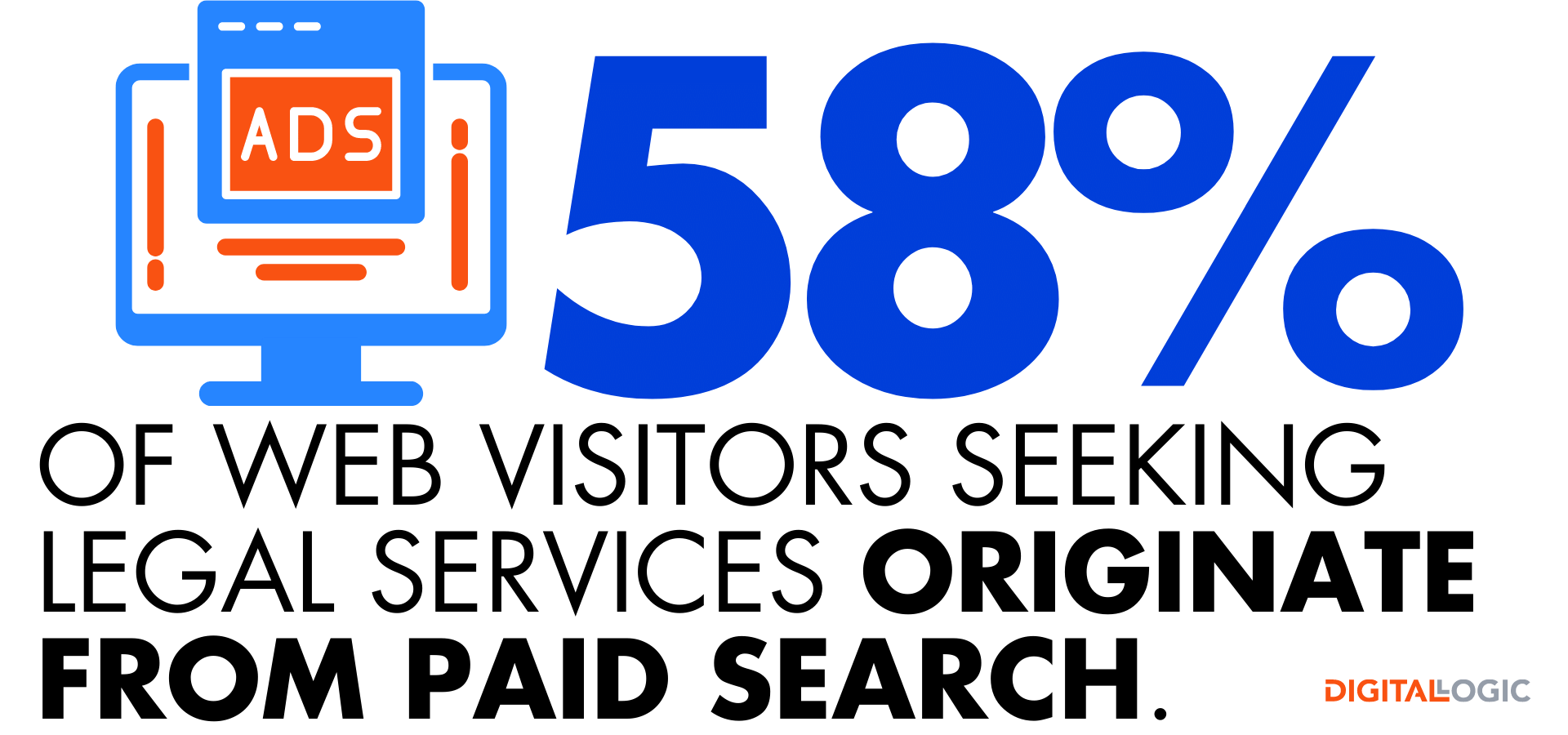
How to Use Google Ads for Lawyers
While there are many advertising ideas for law firm growth, some of the more popular ways you can use Google Ads (formerly GoogleAdwords) to capitalize on your law firm marketing strategy include:
Target Specific Zipcodes
It is often the case that there will be parts of your city more target-worthy than others. For instance, with family law marketing, promoting your law firm to an area of your city where there are only businesses is somewhat useless. Using AdWords, you can target specific parts of your city, rather than just the city as a whole.
Find an effective bidding strategy
A crucial element of running Google Ads campaigns for lawyers is getting the most bang for your buck. Knowing what to bid on and how much to bid can increase your cost-effectiveness.
Focus on Long-Tail Keywords
Focus on long-tail keywords, not just head terms. Head terms like “lawyer” and “attorney” are ridiculously expensive, and only the biggest law firms can afford to be competitive in these areas. You never want to be too general on Google Ads or AdWords.
- Head keywords for law firms are single-word, general terms, like “lawyer”.
- Body keywords are 2-3 word phrases still broad enough to attract a good search volume, but more specific than just a head term, and thus less competitive.
- Long-tail keywords are 4+ word phrases and are very specific.
Keyword Options for Law Firm Ads
You generally have four options when bidding on keywords:Target CPA
With target CPA, Google will adjust keyword bids to satisfy your stated cost per acquisition. This, obviously, maximizes your cost per acquisition.
Target a Position
Your bid is altered to get you whatever spot you want, usually in the first four ad slots on the first page of Google. This can seem like the most solid strategy, but oftentimes bidding too high for the top spot can eat away at your budget, and many people who just click the top result are not being particularly selective.
Enhanced CPC
Google will use its algorithm to determine how to get your keywords the most conversions.
Maximize Clicks
This is where you bid to get the maximum number of clicks.
Bid on Branded Terms
Even if you are the top organic result for your own branded term (which generally will be the name of your law firm), what you do not want is your competitors outbidding you for your own branded term and ending up higher than you in the paid ads category when someone Googles your brand.
Use Device Bid Adjustments
Say you have a specific ad campaign that performs exceedingly well on smartphones or tablets. You can increase the percentage of people who will see this ad on those mobile devices by increasing your bid. By increasing your bid 10% for searches on mobile devices, the percentage of people who see that ad on mobile devices also increases by 10%.
Variety of Keyword Match Types
As the Founding Fathers said, not all keywords are created equal, or something like that.

Keyword Match-Types for Law Firm Marketing Strategies
Keywords are grouped by match type, and you get to decide what match type to apply to which keywords. Generally speaking, there are five different match types:
Broad Match
This will trigger your law firm’s ad when people search for your keyword phrase or one similar to it. For example, if your keyword is “family lawyers” someone could trigger your ad by searching for “divorce lawyers”.
Broad Match Modified
You can add a plus sign to a keyword to modify a broad match keyword. Your ads may show on searches that include modified broad-match keywords in any order. For instance, if your keyword is “family +lawyer,” your ad may show on searches for “family attorney.”
Phrase Match
The only searches that will trigger your ad are those that search for your keyword phrase specifically or close variations of your keyword phrase. Words could potentially be included before or after your keyword phrase in the search. For instance, searches for “family lawyer in Miami” could trigger the keywords “family lawyer” in your ad.
Exact Match
Searches for that match your keywords exactly, or are very close variations of, will trigger your ads. Close variations would include a reordering of words so long as it does not change the meaning, the addition or removal of certain function words like prepositions or conjunctions.
Negative Match
Searches that do not include a negative match keyword will trigger your ads. So, if you are a family lawyer but you don’t provide divorce mediation, you could use “mediation” as a negative keyword. Searches for “mediation lawyer” will not display your ad.
Keyword Tips for Law Firm Marketing Success
Different match types will obviously yield different results.
For instance, an exact match will often lead to the highest conversion rates, but fewer searches will trigger these ads. A broad match means more impressions and more clicks, but not all of those clicks will necessarily create conversions to paying customers for your firm.
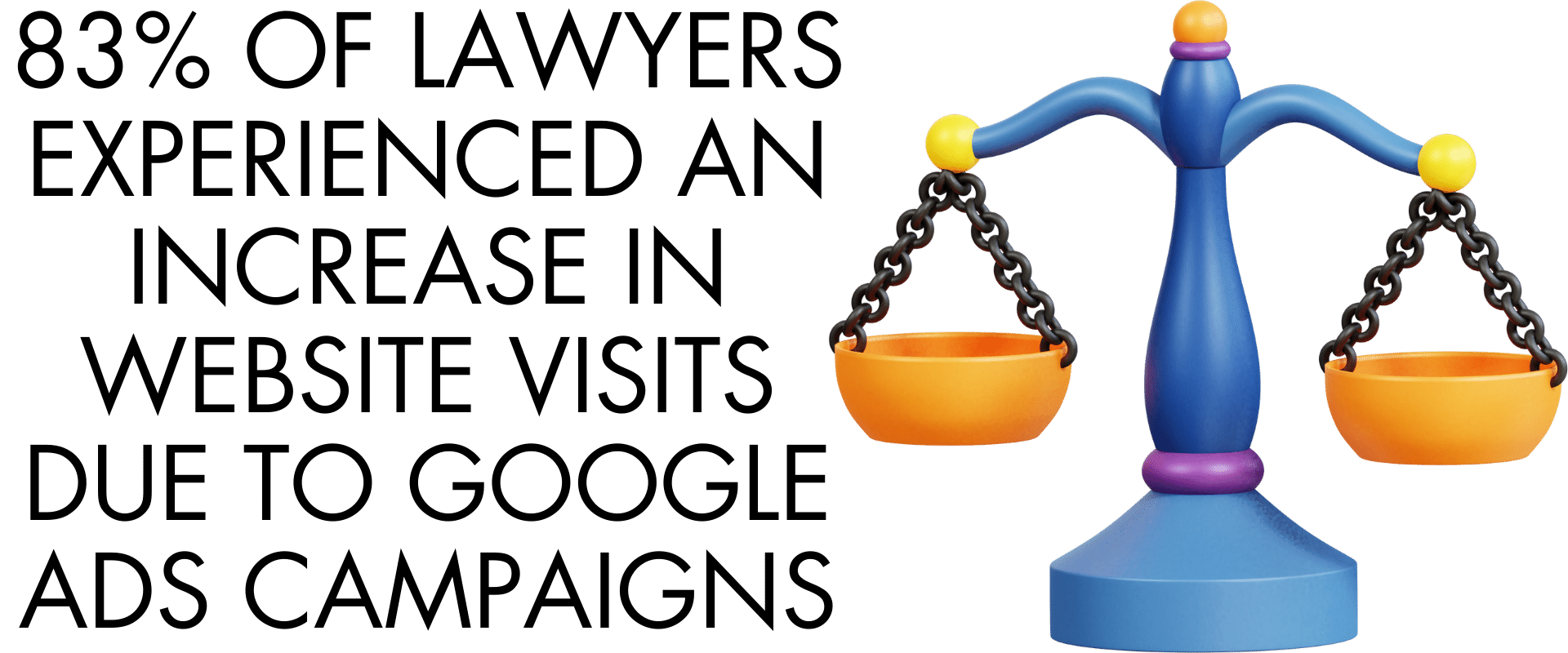
Use “single keyword ad groups” for the highest-performing keywords
A single-keyword ad group is an ad group that uses only one keyword.
When you are using a Google AdWords campaign to market your law firm, you should group your best-performing keywords by themselves.
This has several benefits, including greater control over keyword bidding, and a greater level of control over ad copy triggered by a keyword.
When you have a keyword that is performing exceptionally well, it is always best to group it on its own so that it can be optimized accordingly.
Test the messages in your law firm's ad copy
One of the greatest sins of advertisement is to assume you know what your target audience will respond to.
Fortunately, Google allows you to test different versions of your ad. You can vary the wording and structure of your ad, and Google will allow you to access the number of impressions and clicks awarded to each version.
You should test variations on Headlines, Body Text, and Display URLs
Integrate keywords into your legal ads
The same concepts that govern the inclusion of keywords on your basic website content also apply to your AdWords content.
You should always attempt to include your keywords in the Ad’s Headline, Display URL, Ad extensions, and Actual body of the ad copy.
Use Negative Keywords
These are the keywords you don’t want your business to rank for. You can list negative keywords like the names of cities or states that are outside your target region so that your business will not appear when people search for legal services in these areas. You can also use negative keywords to keep your law firm’s site out of searches regarding job listings, colleges or universities, or words like “games” or “apps” that are unlikely to yield high-quality sales. Being aggressive with negative keywords can help ensure that only people likely to become paying clients see your site.
Use Dynamic Keyword Insertion
Use Dynamic Keyword Insertion, or DKI is an AdWords feature that tailors your ad to match a potential client’s search query. For example, if you are investing in criminal defense attorney advertising and you have an ad group that specifies impaired driving in your area when someone searches for “impaired driving lawyers”, AdWords will use DKI to title your ad “Impaired Driving Lawyers”.
Separate Ad Groups by Theme
AdWords allows you to set up groups for your ads for different keyword themes. If your ads and keywords are all grouped together, everyone will see the same ad regardless of which keywords they are searching for. For example, let’s say your law firm specializes in both bankruptcy law and family law. If you separate your ads into groups based on these keywords, when a potential client searches for “bankruptcy lawyers,” your ad will tailor itself with keywords related to bankruptcy, rather than a one-size-fits-all ad copy.
Use Ad Extensions
Ad extensions are free tools provided by Google to enhance the efficiency of your ads. Some of the more popular ad extensions include:
- Sitelinks, which enables you to add more links to your ads
- Call–outs allow you to promote specific features or offers in your ads, such as the number of successful cases you’ve participated in, or years of experience you have.
- Call extensions, or click-to-call extensions, allow you to add phone numbers to an ad.
- Location extensions allow you to put your law firm’s address in ads.
If you’ve run AdWords campaigns in the past, it’s very likely your campaign was not entirely optimized. AdWords can quickly become a costly option if not utilized to its full extent.
Google Local Service Ads for Lawyers
Google Local Service Ads, or SLAs, are the latest form of digital advertising. And now, they’re available for attorneys. If you’re looking to grow your firm, LSAs are the way to go. LSAs for attorneys are Google-approved advertisements for firms that appear as the top result on the page. These ads top even the sponsored sites that pay for their place on the page.
Read this comprehensive guide on Google Local Service Ads for attorneys, or download our guide:
Inbound Marketing Strategies for Lawyers
Inbound marketing attracts potential clients to your law firm’s website passively, usually through content or social media marketing.

Creating relevant and useful content can add to your desired brand and draw people to your website, while also showcasing your expertise.
One method of creating content for your website is contributing posts to your law firm’s blog on topics relevant to your area of practice. This is what Digital Logic does for many solo law firm marketing campaigns.
Having helpful and relevant blog posts written by members of your firm and promoted on your website also raises your credibility with your target audience. If someone is looking for a lawyer for a DUI conviction and sees multiple blog posts about DUI laws, they are more likely to consider that lawyer an expert.
Not to mention that the more content you create, the more your legal SEO will improve. Guest blogging on other sites, or creating posts that could potentially be cited elsewhere, can provide valuable back-links and citations that will increase your standing with Google.
Another factor that may increase your ranking with Google is being active on your own site. Posting regular blog updates (even if they are somewhat infrequent) can help you get higher in the search results.
This type of content is available to the public, but what many lawyers under-utilize when marketing their law firms is gated content.
Gated Content vs. Un-Gated Content for Law Firms
Gated content is content on your website that can’t be reached just by looking; the potential client must input their name and, most likely, their email address before accessing that content. This divides those who are genuinely interested in becoming paying clients from those who are just curious.
There’s plenty of contention surrounding whether gated content is worth turning potential visitors away from your site. It comes down to just one question: are you more interested in creating genuine leads or conversions, or generating page views?
Benefits of Gated Content for Lawyers
Gated content has plenty of benefits. It can help your law firm:
Understand Your Law Firm's Audience
By gathering information on who is accessing your content, you can understand who exactly is looking at your law firm’s site. If a certain population of people continually accesses specific content, you can be sure to target that specific population with related content in the future
Forge a Relationship of Trust
When people give out their information to access content, they generally view that content as being more valuable. Having high amounts of valuable content on your site awards authority and trustworthiness to your brand.
Streamline the Legal Sales Process
When you have more information about a potential client, you’re better able to target them.
Drawbacks of Gated Content
Despite the benefits, gated content also has a couple of drawbacks, such as:
Limiting Your Firm's Audience
If you put content behind a gate, it follows that not as many people are going to see it. Fewer people are going to be willing to give out their information.
Limiting Backlinks
From an SEO perspective, putting content behind a gate isn’t always a good thing. Third-party sites tend to avoid linking to gated content.
When it comes to inbound marketing, the key to gating and not-gating your content is being sure to gate the right content at the right time.
Social Media Marketing Strategies for Lawyers
Social media isn’t going anywhere, and it can actually be a powerful marketing tool. Creating a Facebook business account or a LinkedIn account to market your law firm only increases the amount of space you take up in the wild world of the web, and that only means more potential clients.
Whether you’re marketing your law firm to millennials, their parents, or their grandparents, most of your target audience is hanging out on Facebook for a significant chunk of their day, and more people are discovering new businesses on Facebook than ever. If you can reach them there, you have the potential to grow your business exponentially with social media marketing for lawyers.

Social Media Marketing for Lawyers
Here are some tips to streamlining your social media marketing process:
Consistently List Firm's Information
People look up businesses on social media. You should make it easy for any potential clients to find relevant information without digging for it.
Make sure the information is consistent. If your hours, your law firm’s name or its address are different from Facebook to LinkedIn, for instance, you lose trust. Make sure your information is correct and consistent across all platforms.
Optimize for Search and Fillers
Use the categories provided. Use hashtags on Twitter, and use specialties on LinkedIn. The more you include on your platform, the more likely your firm is to pop up on the search engines within social media apps.
Utilize Graphics and Videos
Make sure you’re posting content, videos, and photos that are consistent with your message. Don’t post low-quality videos or photos. Don’t post a Facebook Live of an event if no one is there.
Incorporate Your Law Firm's Brand
Try not to post too many promotions, but also avoid using too much slang or jargon.
Reply to Your Law Firm's Audience
This is what social media is for, after all. Social media gives you an excellent opportunity to build trust and relationships with your community and see who’s looking up your firm.
Claim Your Law Firm's Directory Listings
Many people look up businesses on Yelp or FourSquare. These types of sites allow users to set up listings for businesses if there is not one already there. Set up your law firm’s listing before anyone else can; if you set it up, you can control it.
Find the best time to post on social media platforms
Do plenty of research into when people are looking for your services, and what times are best to post in order to reach them.
Know Your Target Audience
Ask potential clients what they want to see on your social media pages.
Create a Social Media Marketing Plan
Plan what you’ll post. Don’t decide on the day of, or choose arbitrarily.
Video Marketing for Attorneys
Video marketing for your law firm is an important part of getting your page seen. According to research, you’re 53 times more likely to be featured on the first page of Google if your website features a video.
If your firm’s target audience is younger, videos are a great way to garner their trust and interest.
You can use video marketing to:
- Introduce your attorneys
- Provide a behind-the-scenes look at your law firm
- Feature client reviews and testimonials
- Provide instruction or education, which builds authority for your firm’s brand
People also tend to share your content on social media if you include a video, as those types of posts are more social media-friendly. And video marketing is more cost-effective than it’s ever been before: the iPhone or Android in your pocket is likely capable of shooting high-quality video.
Adding video to your landing pages can also increase your conversion rates by more than 80%.
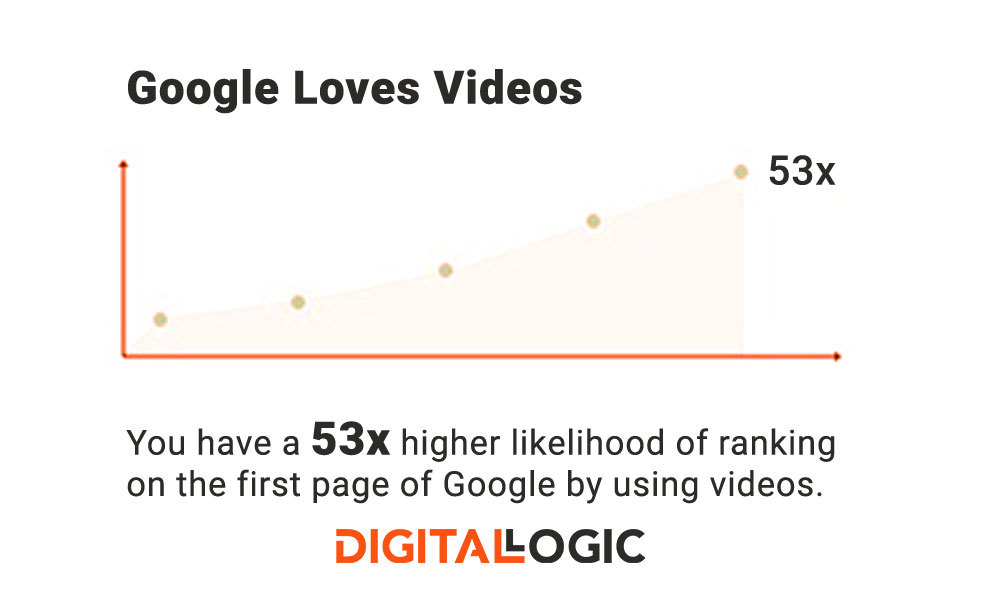
Tip: No matter what your video features, be sure it is not too long. The point of a video is to make your content more palatable to a larger audience, and not many people will watch a video longer than a few minutes.
Invest in Public Relations to Grow Your Law Firm’s Brand
The nature of public relations may have changed, but their benefits have not. A strong media outreach program can work together with other digital efforts to increase leads and conversions for your law firm.
Media outreach can help your law firm by:
- Enabling you to feature press releases as content on your firm’s website.
- Getting your attorneys featured on legal news aggregation sites like Law Times.
- Obtaining third-party endorsements, and remember, any third-party endorsements, citations, or back-links will increase your SEO.
- Many major publications make it very easy to target your ideal audience by dividing their content into specific sections or pages
- Investing in a public relations professional for your law firm can also help you mitigate crisis; you want to be proactive rather than reactive. Don’t wait until a crisis happens to start working on your public image.
Not all public relations are equal, either; you don’t necessarily have to hire an in-house PR professional. Sometimes it can be just as beneficial to hire an external PR firm that has the benefit of focus, rather than an in-house professional who may have responsibilities outside PR and communications.
Develop a Sales Process That Converts Your Leads Into Paying Clients

You can fine-tune your law firm’s website to generate clicks and page views all day long, but none of that matters if you can’t convert those clicks and page views to paying clients.
This is something that law firms struggle with at times. When a potential client goes past simple informational inquiries and becomes a sales-qualified lead, how you respond decides whether or not you convert that click into a paying client.
Depending on your firm, every sales process will be different, but optimal success depends on your promptness in responding to any inquiries. If you have a free case evaluation form on your website, for example, once the form is completed, how long does it take you to respond? How do you respond?
Until a potential client becomes a paying client, each and every interaction you have with them should display the benefits of hiring you. It can be helpful for you and your associates to have a set process you take each and every prospective client through that qualifies them and shows them how you can help.
Developing an effective sales process is something that can take time and practice, for both new and seasoned attorneys and law firms.
Work With a Professional Law Firm Marketing Agency
The world of marketing and the world of law firms are both dense with pitfalls and complications. That’s why it is never a waste of money to pay an experienced professional to design your website, to handle your SEO, or to optimize your Google AdWords campaigns.
If you perform your due diligence, your law firm can reap all the benefits of an optimized marketing campaign. Read our comprehensive guide on attorney lead generation.
Contact Digital Logic today to see how we crush online marketing for law firms.

